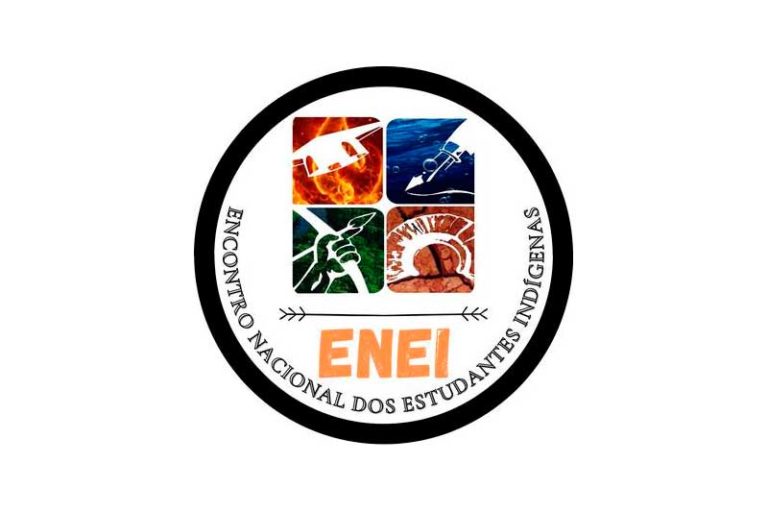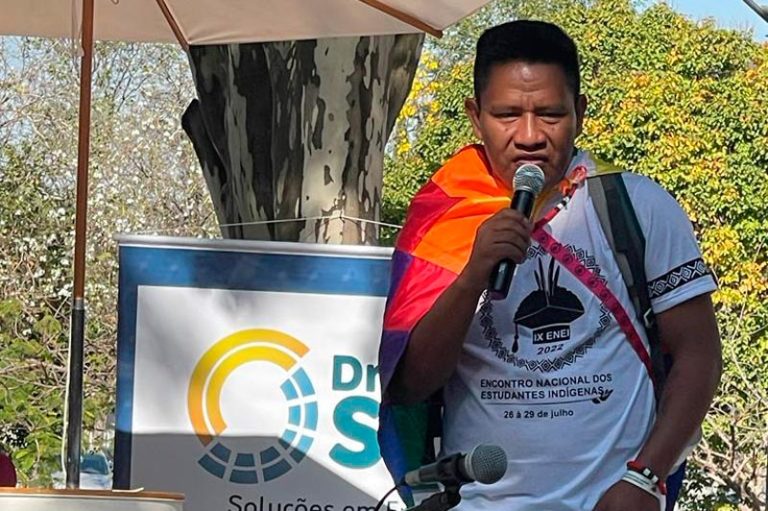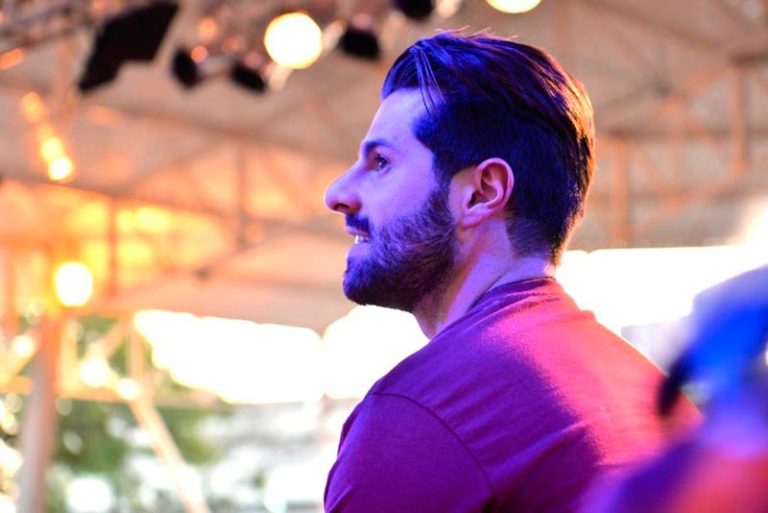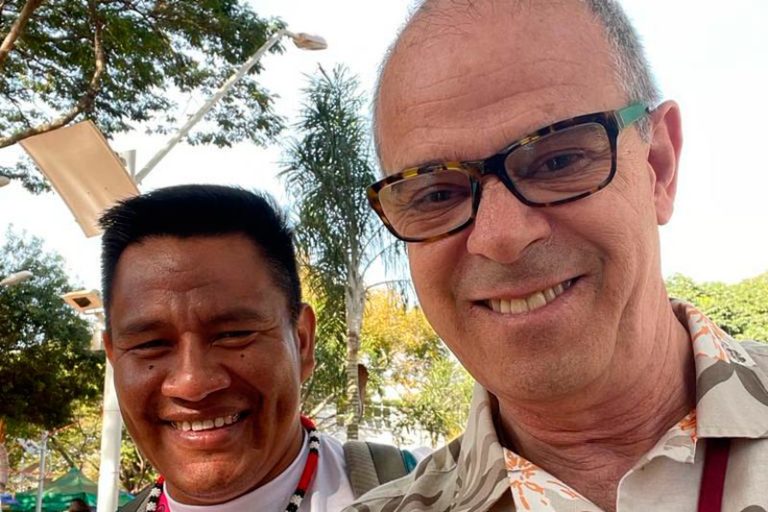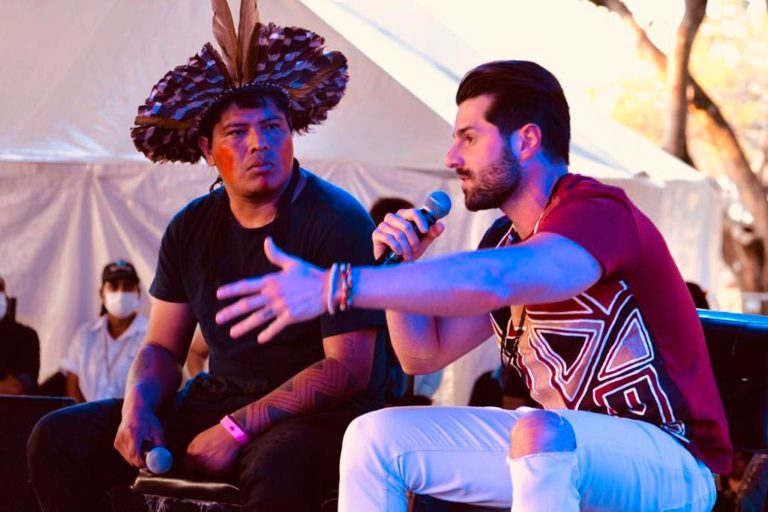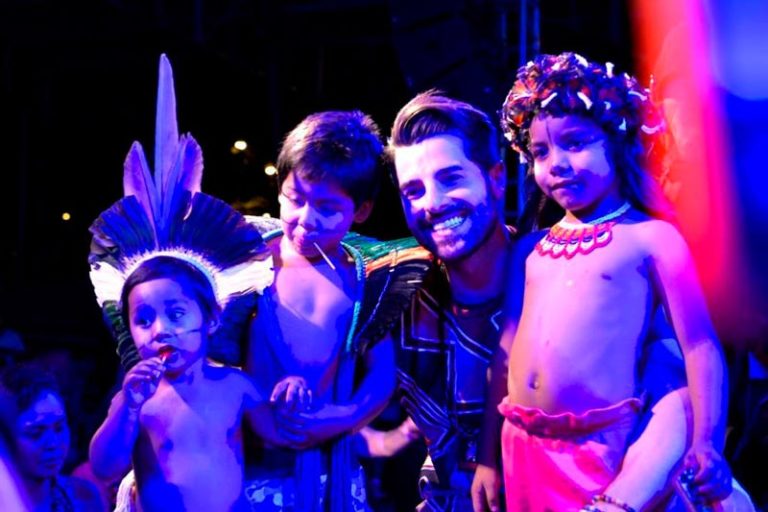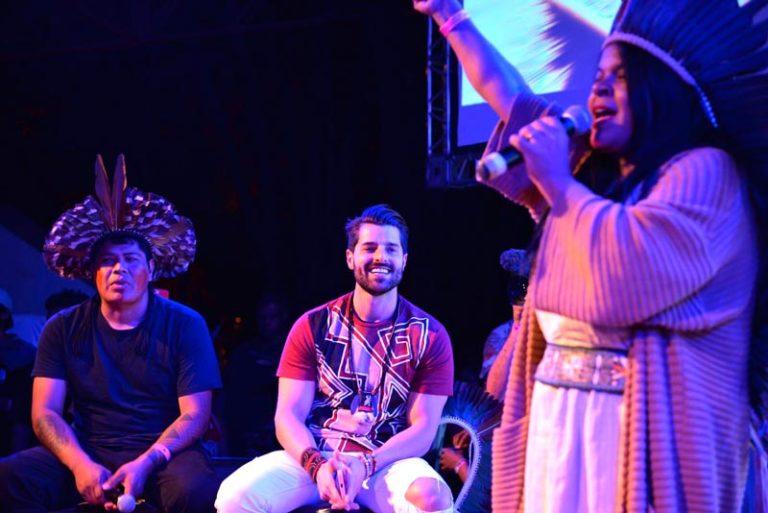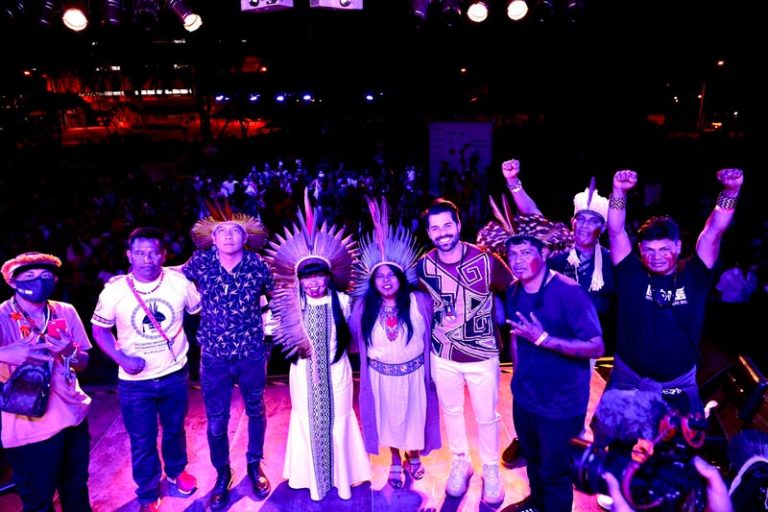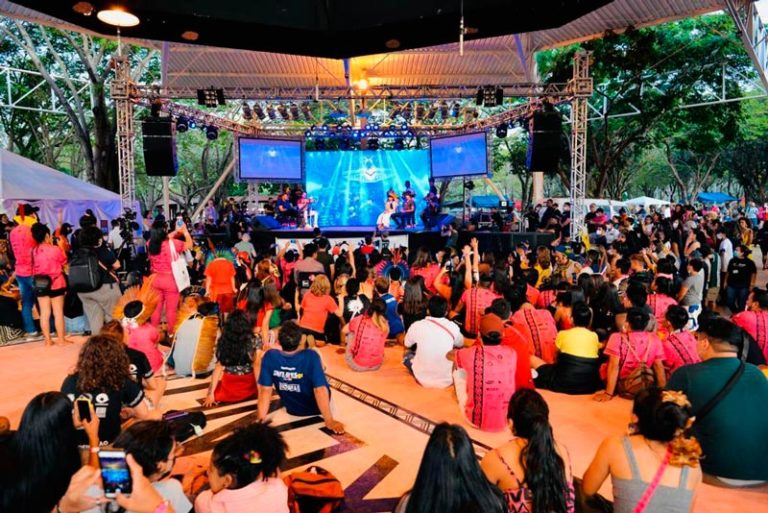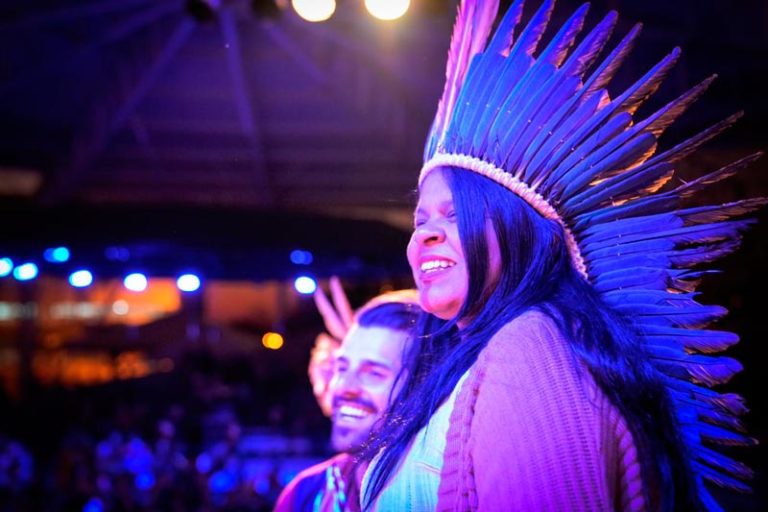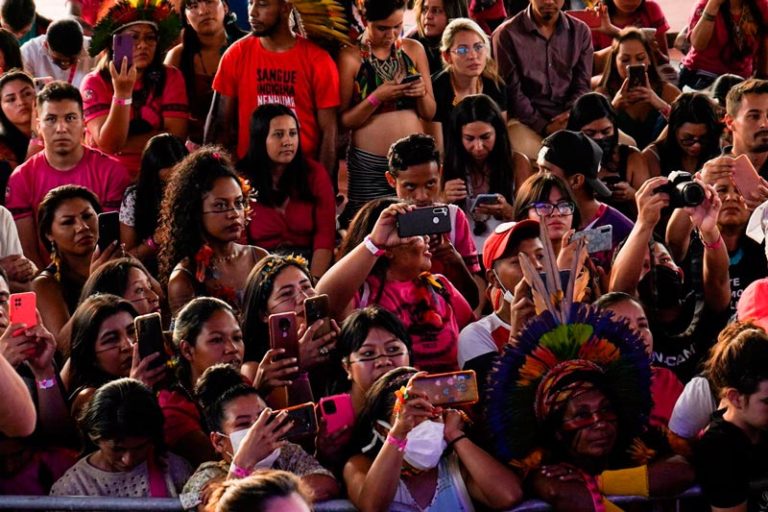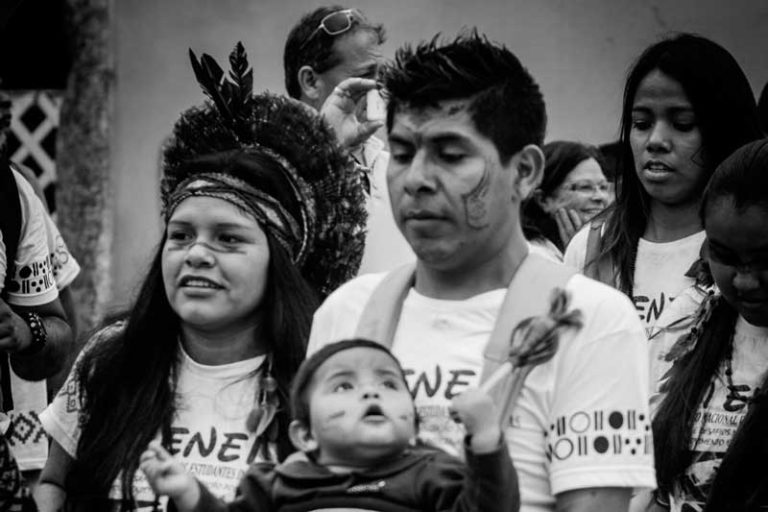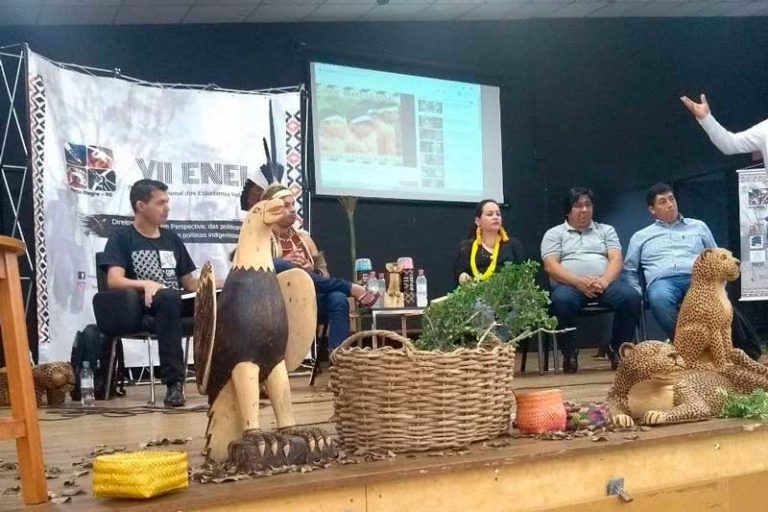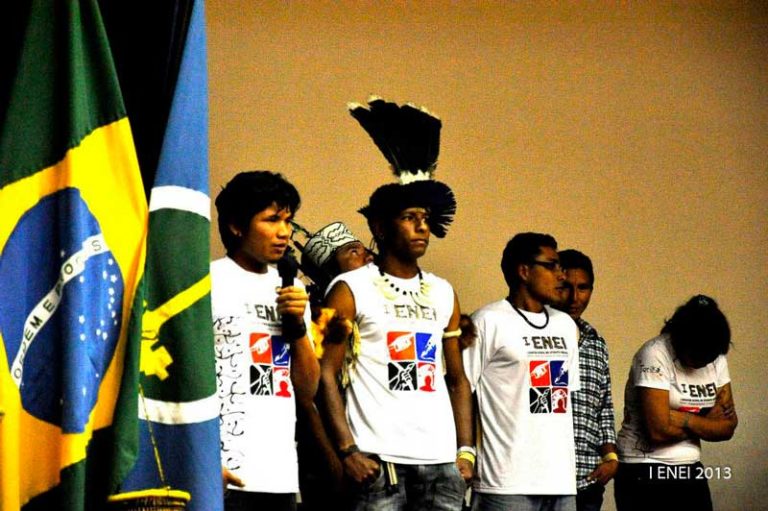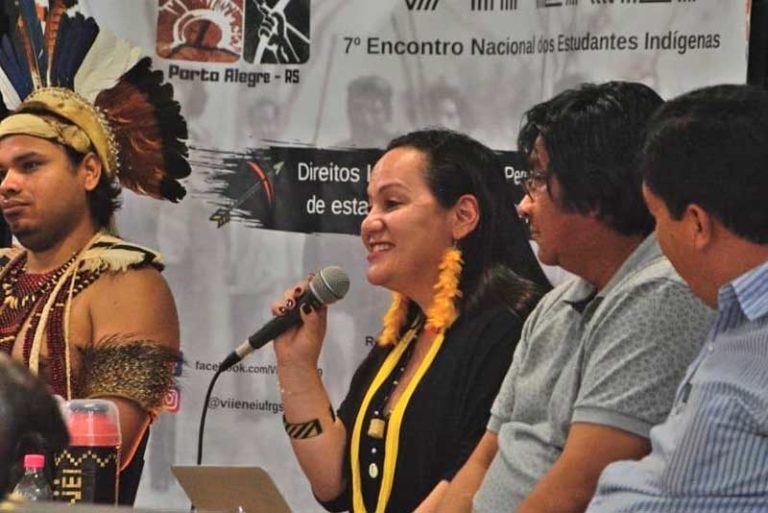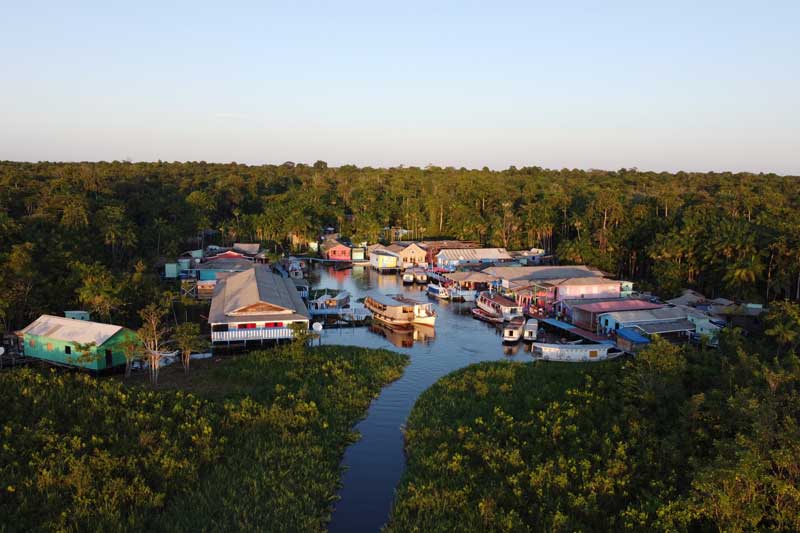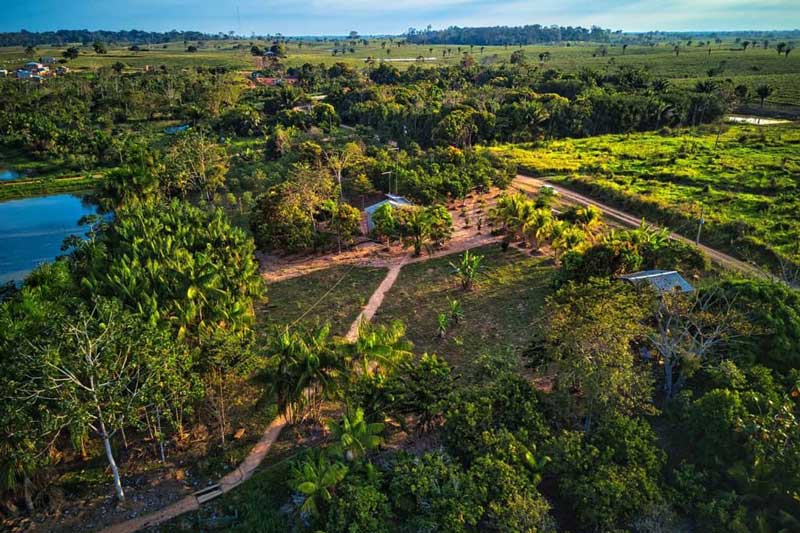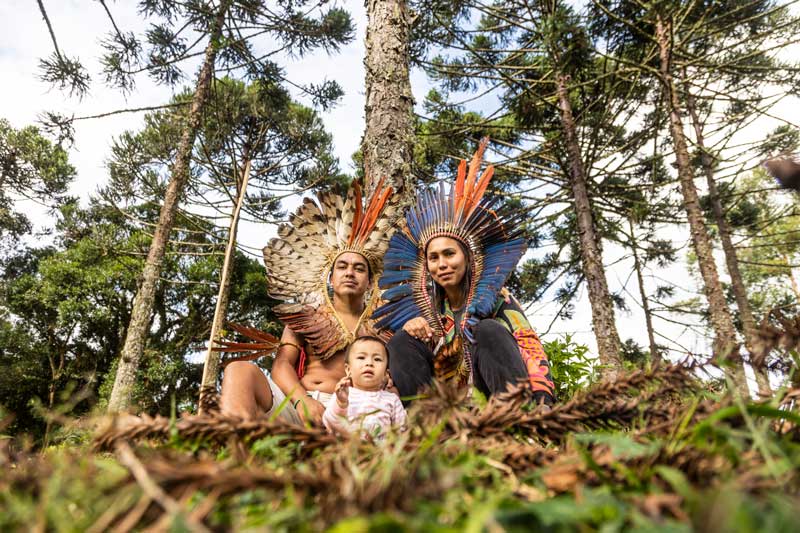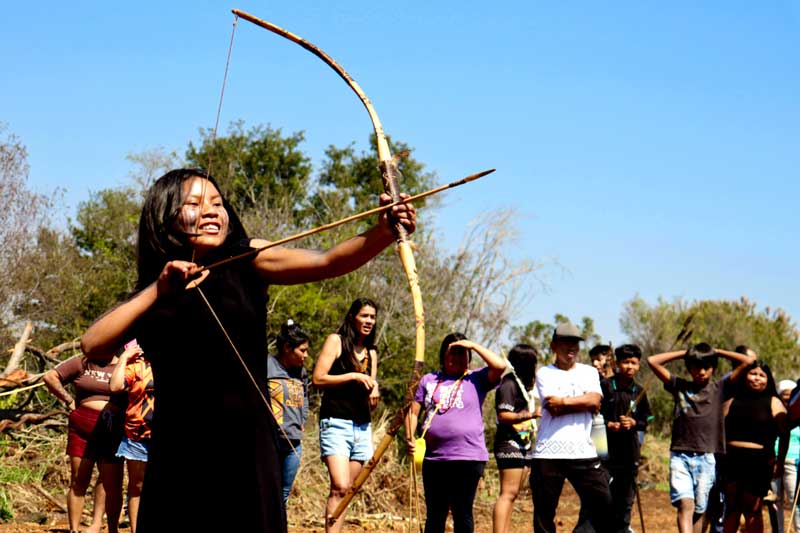The Alok Institute embraces the indigenous youth and their causes, supporting the IX ENEI and X ENEI – National Meeting of Indigenous Students, which took place respectively at Unicamp in Campinas, SP (2022), and at the Potiguara Mansion in the Jaraguá Village, Rio Tinto, PB (2023).
The meeting has become a reference for reflection and collective mobilization on Higher Education and Intercultural Education, promoting networking and alliances in many fields of action. It was conceived and has been led by indigenous peoples with the participation of crucial non-indigenous allies for better dialogue and understanding of the indigenous cause, becoming a space for teaching, learning, disseminating and sharing knowledge, specifically through the exchange of experiences amongst indigenous undergraduate and postgraduate students, teachers/researchers, professionals and other leaders.
The intention is to promote, stimulate and foster discussions about the access and permanence of indigenous students in higher education.
IX ENEI
The meeting took place in July 2022 with the theme “Ancestry and contemporaneity” bringing circular perspectives of time. “By guiding our contemporary actions and reflections on experiences and knowledge that our ancestors and elders composed, ritualized and updated the past, we transform the present and create other possible futures. The proposal of the meeting was to constitute, through a critical approach, a panorama of the moment we experience, not as a linear or static process, but with its continuities, discontinuities,and circularities, where it is possible to act creatively“, says Arlindo Gregório (Arlindo Baré), general coordinator of IX ENEI. The presence of the artist Alok and financial support were part of this partnership.
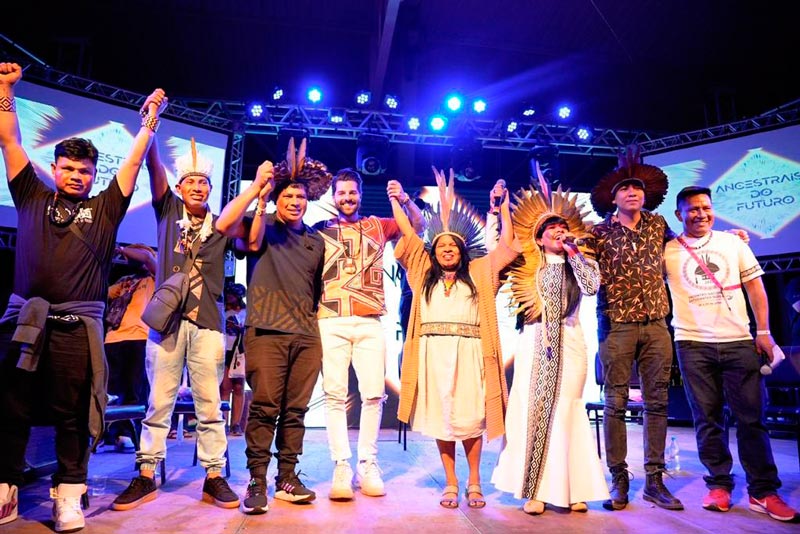
Fotos: Rodrigo Duarte, Leo Otero, Edgar Kanaykõ Xakriabá e Equipe Instituto Alok.
Ver essa foto no Instagram
X ENEI
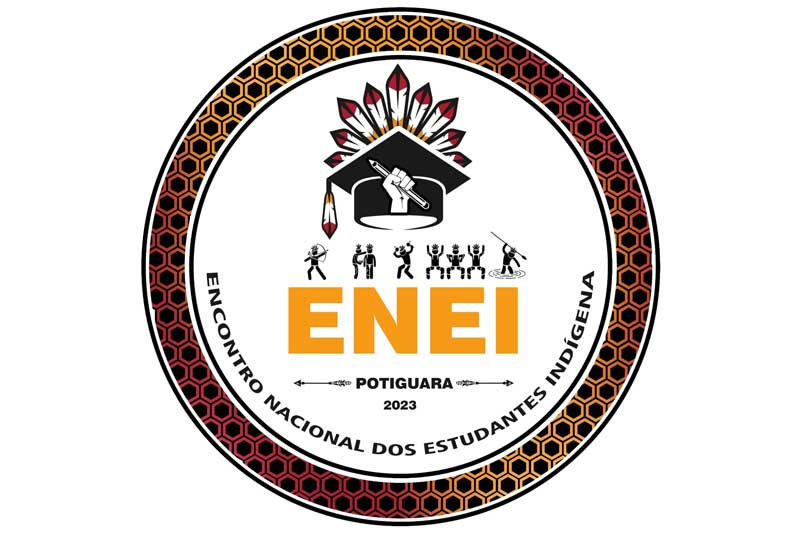
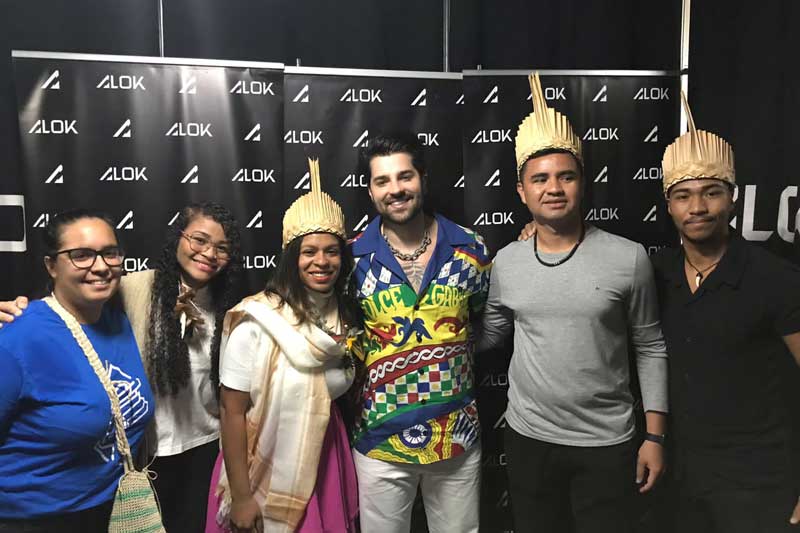
With the theme “Analysis and Conjuncture of Indigenous Presence in Higher Education in the Last Decade,” the meeting took place in October 2023, with the participation of 800 students from across the country. The event brought reflections about indigenous on higher education, continuing the discussions held in all National Meetings of Indigenous Students from 2013 to 2023.
The activities included conferences, roundtable discussions, working groups, cultural activities and also:
- A space for exchange between indigenous scholars and researchers about their journeys in Higher Education Institutions and the challenges they perceive when entering universities.
- Collaborations among students to seek affirmative action policies for Higher Education from the government.
- Presentation of papers by students and teachers focused on Indigenous issues.
- Exchange of experiences between the Potiguara people and the academic community.
- Strengthening the socio-political movement of Indigenous peoples in Paraíba.
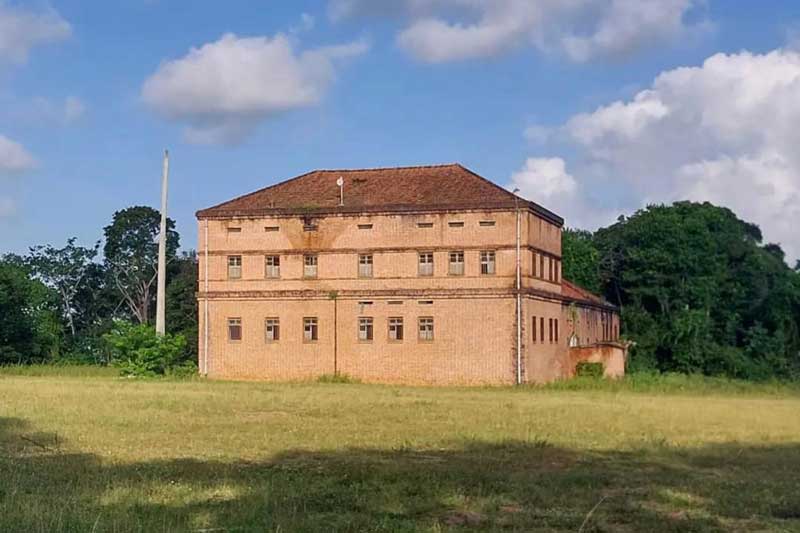
Potiguara Mansion
Memory, Massacre and Resistance
The Potiguara – indigenous people of Paraíba – live in three Indigenous Lands (TIs), divided into three municipalities: Baía da Traição, Marcação and Rio Tinto. In the early 20th century, a Swedish family purchased land near the Monte-Mór Indigenous Land, a place known as Preguiça Site, but in the mid-19th century, the Potiguara had already gained possession of their lands through a recognition act by Dom Pedro II, who donated two sesmarias to them. In the early 2000s, the Potiguara of Monte-Mór began the process of retaking their former sesmaria. During the Lundgren family’s dominion, some buildings of a now old fabric factory were constructed within the Monte-Mór TI. Among them is the Potiguara Mansion, which has been used as a school since 2007, nurturing the dream of transforming it into a resistance museum of the Potiguara of Monte-Mór.
About ENEI
The National Meeting of Indigenous Students (ENEI) has demonstrated its power for addressing university-related themes such as interculturality, the ecology of knowledge, decolonization of predominant knowledge production paradigms and the strengthening of indigenous traditions.
It also contributes to academic qualification and acts to show the real historical/protagonist subjects, sharing research and weaving reflections on the issues that affect their lives.

